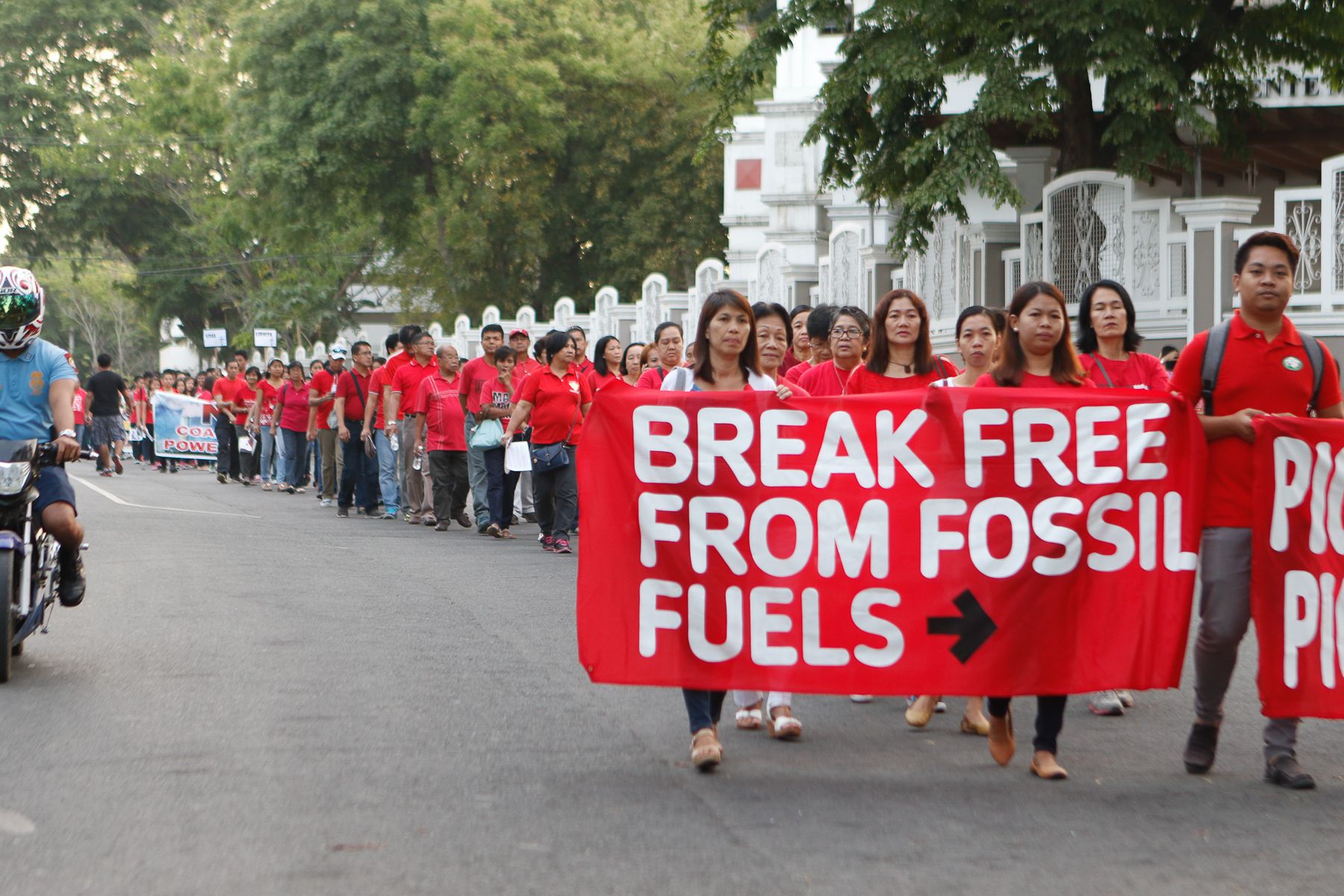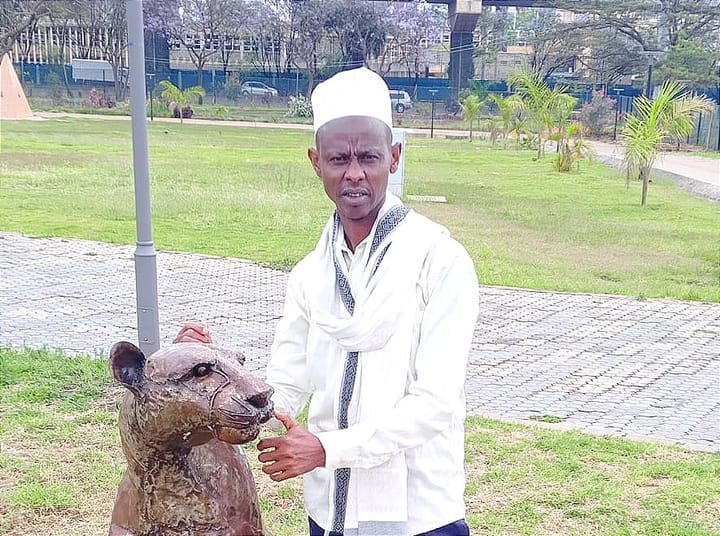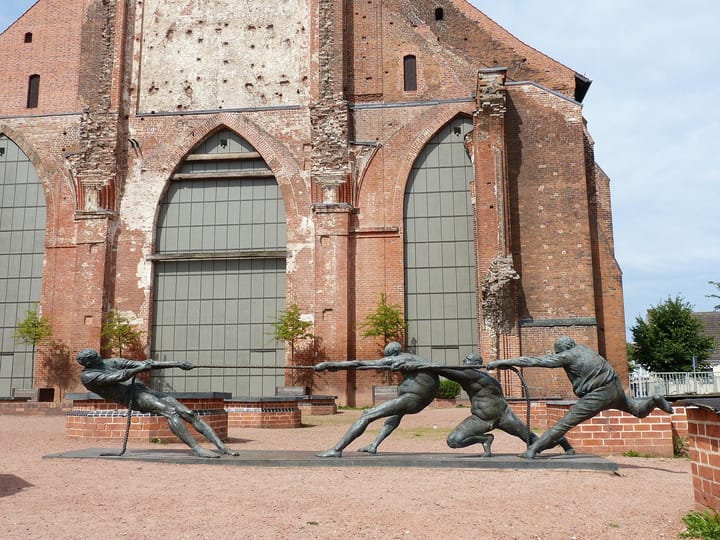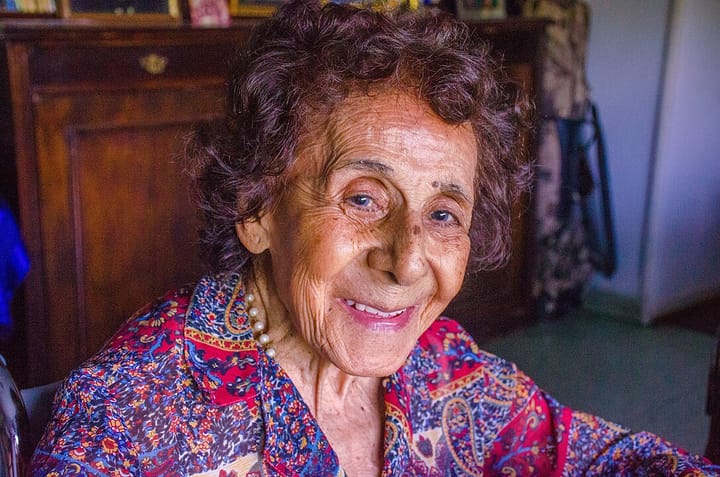‘It’s the only weapon we have’: Philippines hurricane survivors frustrated over fossil fuel report delay
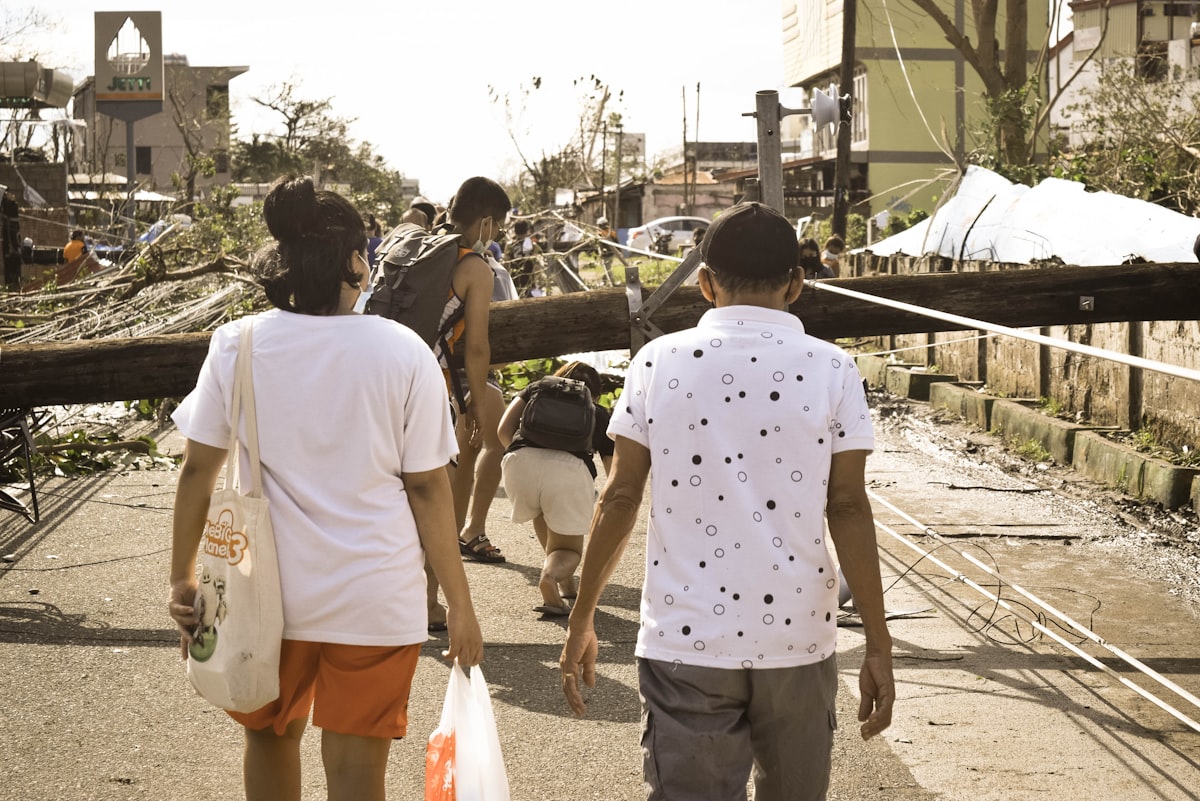
People in the Philippines are pushing for a vital report on human rights and the fossil fuel industry to finally be published
In the middle of December, as families were preparing to get together for Christmas, a huge storm tore across the Philippines.
Typhoon Odette (known outside the Philippines as Typhoon Rai) killed more than 400 people, displaced over half a million from their homes and left 6.8 million more in desperate humanitarian need.
The International Federation of Red Cross and Red Crescent Societies estimated it had destroyed or damaged “a staggering 1.5 million houses, more than any other typhoon in recent decades” and warned of a mounting health crisis in its wake.
The typhoon also caused millions of dollars in loss and damage, according to the Philippines’ Department of Agriculture. Farmers are still reporting harm to their crops, including rice, corn, coconut and sugarcane, as well as livestock and fisheries.
Although still unusual enough to be newsworthy, the number of category 5 tropical cyclones like Odette is growing, a problem the Intergovernmental Panel on Climate Change concluded was “likely” linked to climate change.
And, for survivors of the previous storms that have beset the Philippines, it was a harsh reminder of what has already passed.
High hopes
Veronica ‘Derek’ Cabe’s home was devastated in 2009 by Typhoon Ketsana. Separated from her family, she had to wade waist-deep through floodwater for seven hours to bring them dry clothes and pots of cooked rice and adobo.
The experience made her angry, so in 2016 Cabe joined survivors of the 2013 Typhoon Haiyan and 13 environmental and community groups including Greenpeace South Asia to submit a petition to the Philippines Commission on Human Rights.
The commission, an independent body tasked with investigating human rights violations in the Philippines, was asked to investigate whether the actions of 47 of the world’s biggest coal, oil, mining and cement firms were breaching the human rights of Filipino citizens. It accepted the challenge.
“We had high hopes,” Cabe tells me. Unlike the regular court system, which can be prohibitively expensive for poorer people to access and can take years for cases to end, there was a feeling the commission would be more empathetic to their struggle. “They are human right defenders. We trusted them, because we felt they were our allies.”
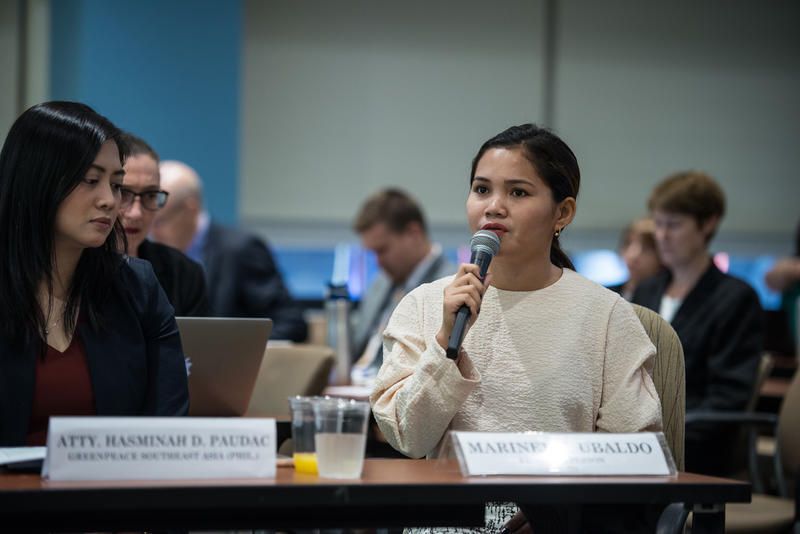
The commission held evidence sessions in London, Manila and New York where it heard personal testimony from survivors of extreme weather disasters and experts in climate science, attribution, litigation and risk. All the companies under investigation were invited as well, but none attended openly.
In 2019, the commission held a meeting at COP25 in Madrid where it revealed its headline findings. The world’s most polluting companies could be sued for their contributions to global warming, it had concluded, and they have clear legal and moral responsibilities to shift away from fossil fuels and invest in cleaner energy.
At the time Greenpeace Southeast Asia executive director Yeb Saño, also a petitioner in the case, described it a “landmark victory for climate justice”.
But the actual report, which would have summarised the evidence heard and detailed how the commission came to its conclusion, was never published.
More excuses
In the two years since, the petitioners have waited with growing frustration. The eighth anniversary of Typhoon Haiyan in November came and went. The commission promised the report would be revealed during COP26 in Glasgow, but that didn’t happen either.
On 9 December 2021, the petitioners took to the doorstep of the commission itself to demand an explanation and hoping to encourage it to publish on the following day - International Human Rights Day. No commissioner came to speak to them so they trudged home. A little later they were called back and told to bring the press. There was excitement - but in the end, just more excuses.
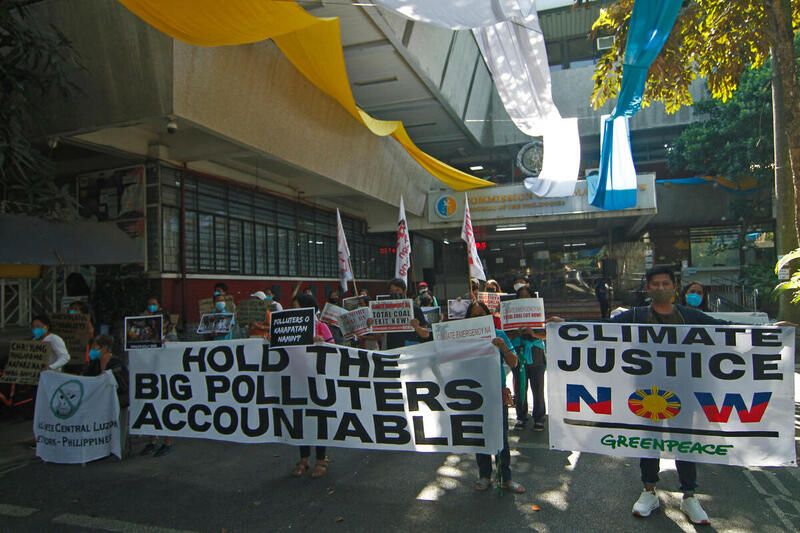
There is no strong culture of climate denial in the Philippines, Saño tells me, so political instability, the death of the commission’s chair and uncertainty over the final wording could all have contributed to the delay. But nobody really knows. Repeated attempts by the petitioners and myself to contact the commission have gone unanswered.
Greenpeace has filed two motions calling for an urgent resolution to the petition. But it is keenly aware that the Philippines is holding general elections in May, when the current commissioners’ term ends. Although the petition will theoretically be passed onto the new team, it may not be a priority.
Saño says the commission is an important institution in the Philippines, one willing to uphold human rights in a very volatile atmosphere. But his frustration is palpable. “The petitioners are a very diverse group with a lot of community groups and trade unionists. We're all running out of excuses for ourselves and for our constituencies.”
Cabe is more visibly angry. “They have kept us waiting for so many years already. They say they are putting our struggle into technical and legal [language]. But it's not about the legal issues or requirements. It is about how we trust them as an ally in this fight.”
“It's not about the legal issues or requirements. It is about how we trust them as an ally in this fight”
She stresses that the petitioners have put themselves on the line because defending the environment comes with real risks in the Philippines. In 2016, her friend and colleague Gloria Capitan was assassinated after campaigning against local coal expansion.
“So after we have put our hearts and shared our stories, told the truth as we see it, and after we have risked our lives, our security and safety, they just tell us about this technicality. Yeah, it's frustrating and disappointing at the same time,” says Cabe.
Another petitioner who gave evidence at the New York hearing, Marinel Ubaldo, told a panel at COP26 that Filipino communities need the outcome of the petition both to hold fossil fuel companies accountable and to move forwards. “We’re still living in the same vulnerability, we’re still living in the same trauma,” she said.
Ubaldo, who now works to encourage faith institutions to divest from environmentally harmful industries with Living Laudato Si Philippines, tells me she wants to see justice. "We want an acknowledgement from these corporations that, 'Yes, it is us that fuelled the climate crisis, and that's the reason your people are dead'. And we want to them to change their business practices."
Unparalleled evidence
While the commission does not have the power to hold the companies legally responsible or to fine them, there had been hopes that its report would inform the development of new laws and lawsuits in the Philippines, and that that the body of evidence it had collected would be used by policymakers, lawyers and climate campaigners around the world.
“We believe it could be used for that, not so much because of the outcome itself… but because of the amount of evidence that has been presented in this whole process,” says Saño. “It takes into account both scientific evidence and the stories that are being told at the community level. That's unique in itself.”
One expert described the reservoir of evidence that had been accumulated as “unparalleled”.
I ask Saño whether the report is now out of date. When the commission was hearing evidence, the human rights implications of climate change were still being discussed, but that has now been firmly established by courts and other bodies.
“I would agree with that. In December we said, this is becoming no longer historic. This is just no longer becoming a landmark case because a lot of other cases – albeit in different contexts because these are courts of law and different jurisdictions – have come up with verdicts against some carbon major companies. So the novelty of it is truly losing steam."
But he argues that it is still the only case lodged with a national human rights institution that questions the responsibility of carbon majors in relation to human rights.
"The reason I feel confident there will be continued inspiration for climate litigation is how I saw people suffering afterwards. Some of them are really, really interested in looking at the catastrophe from a justice context”
Saño also believes that the repeated typhoons striking the Philippines are galvanising its people to demand climate justice by creating another generation of extreme weather survivors.
“I spent Christmas at ground zero where the most intense landfall took place in Mindanao in eastern Philippines. It's been more than a month and these are very rural areas. There is still no electricity. A lot of people are also dying because of diarrhoea and water-related diseases.
“But the reason why I feel confident there will be continued inspiration for climate litigation is how I saw people suffering afterwards. Some of them are really, really interested in looking at the catastrophe from a justice context.”
Whether or not the commission ever finally publishes its report, community and climate activists will continue to do their work on the ground.
Community organiser Cabe says the commission seemed to dismiss the petitioners as a group of campaigners. “But I see how fossil fuel companies have destroyed our communities. Aside from the impacts of climate change, it has destroyed our livelihood - our seas, our source of livelihood. It has destroyed our right to clean air. We are experiencing so many health issues. It's not just a campaign to us. We complain because that's the only weapon we have.”
